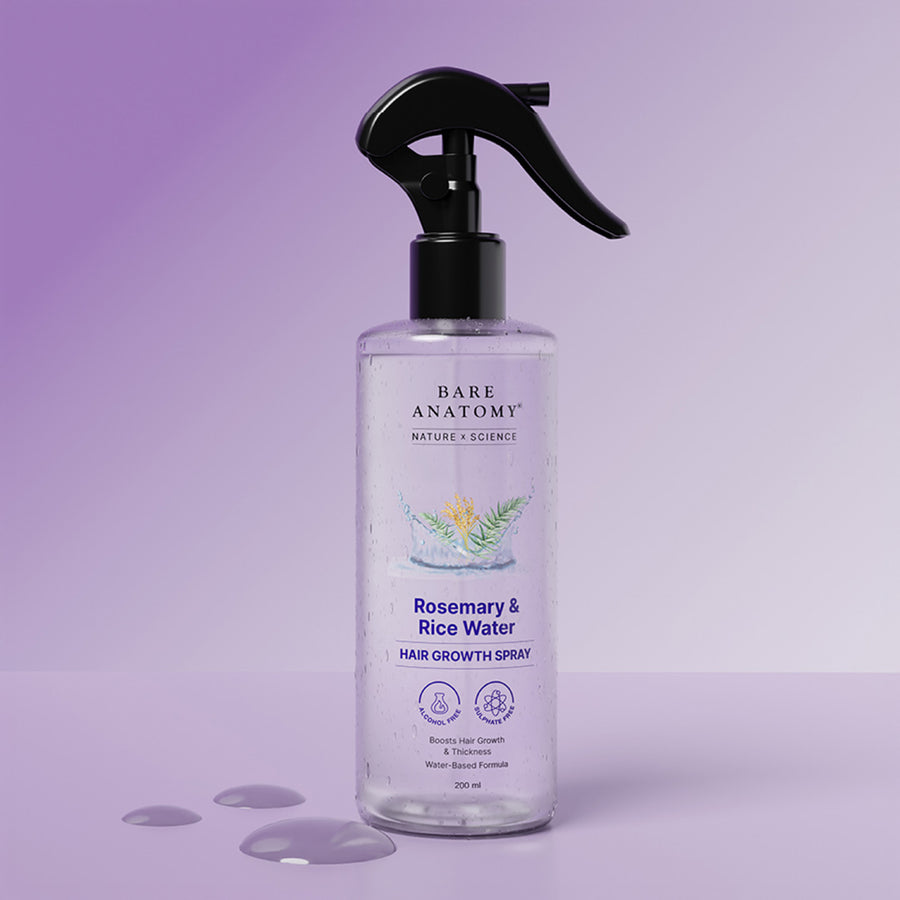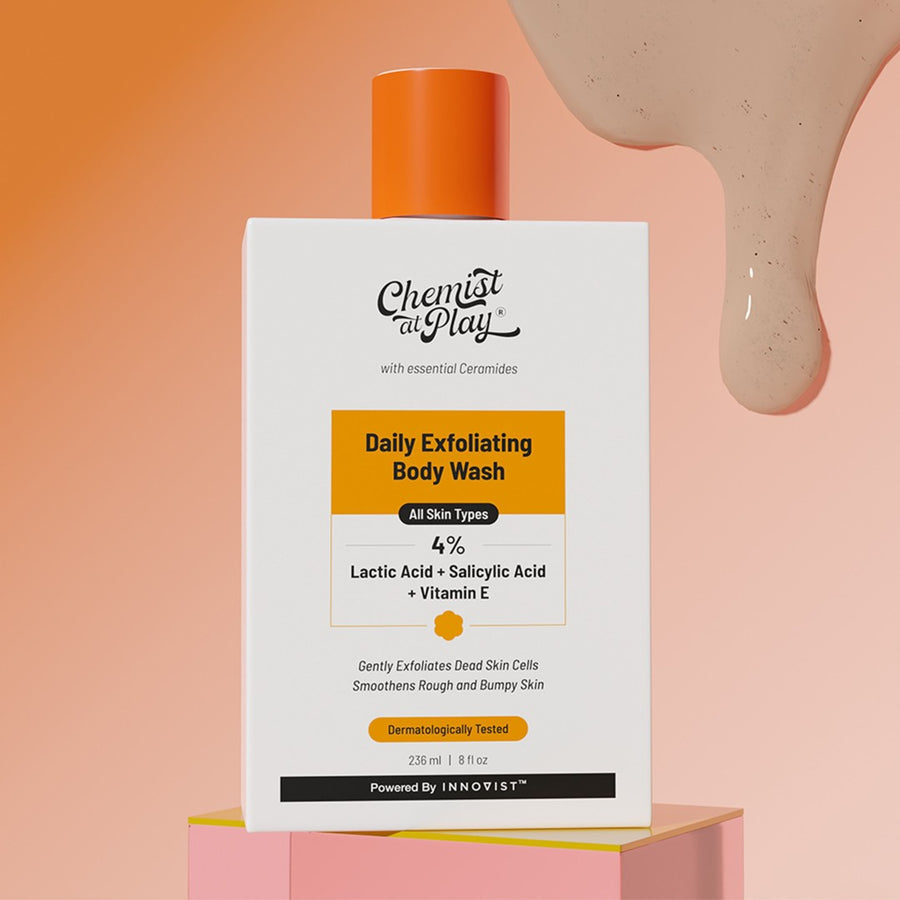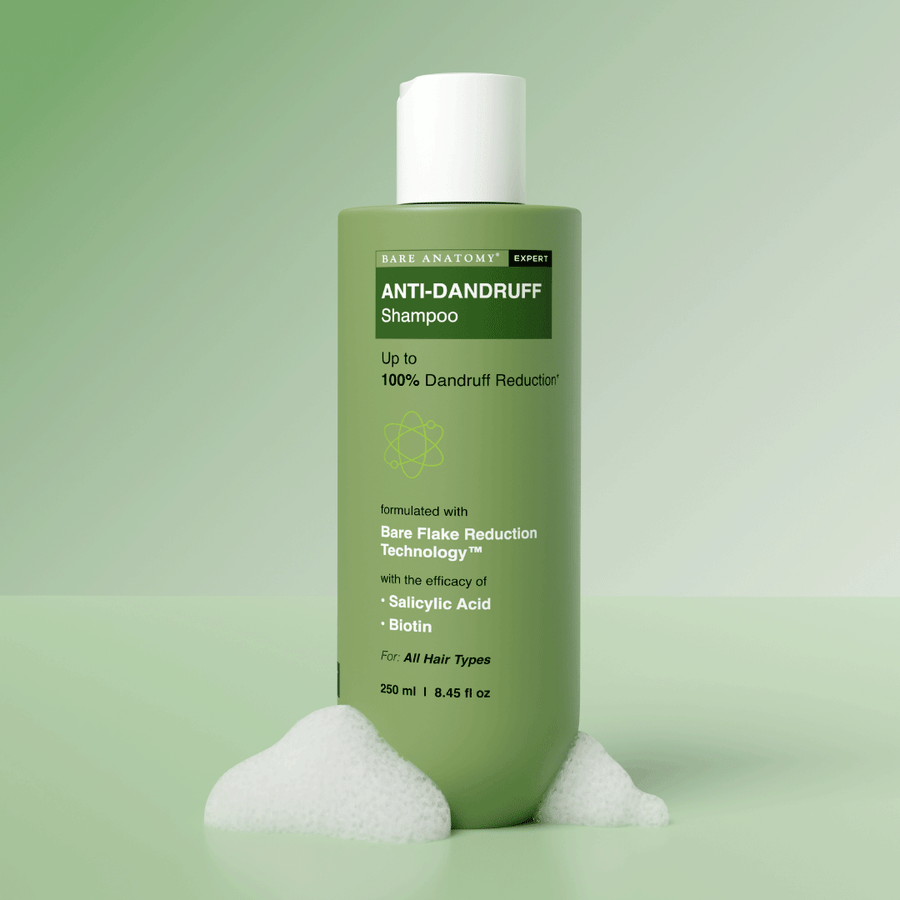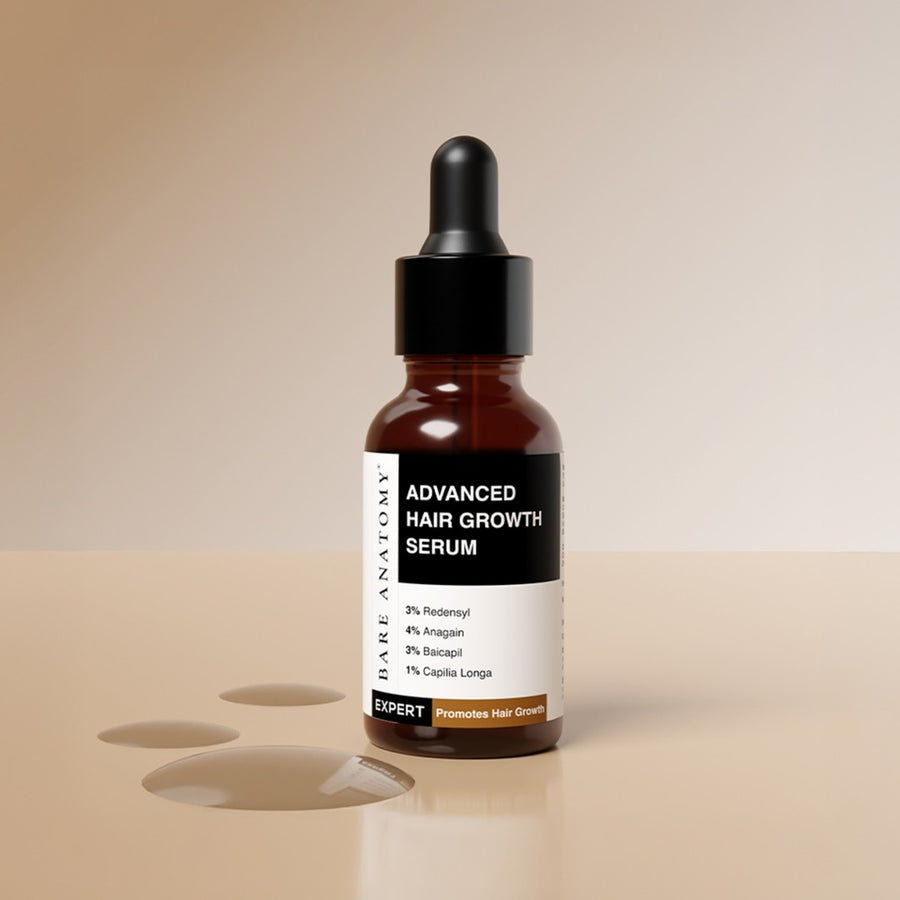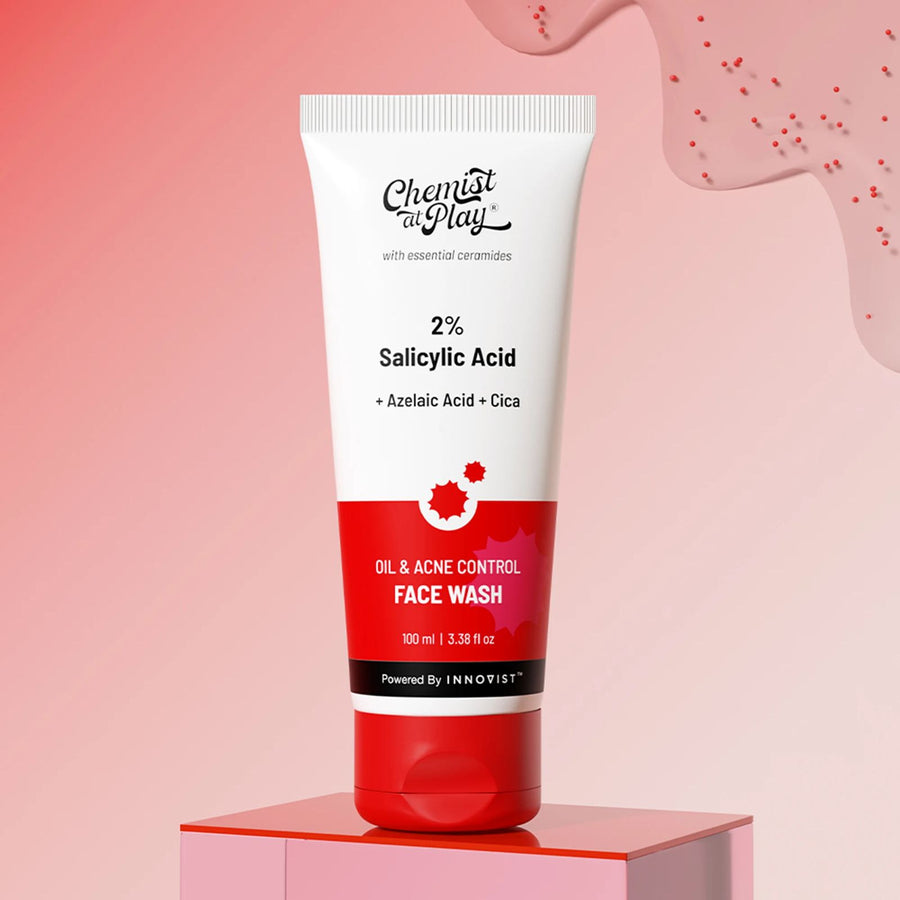
AHA vs BHA: Which One Should You Use?
Exfoliation is a very important part of skincare. It removes the barriers of dead skin cells clogging the skin and helps to clear the route of fresh new cells below. This helps moisturizing products to penetrate even deeper into the skin which makes them more effective. It keeps your skin glowing, fresh and healthy.
Exfoliation is a normal technique that is used by women to obtain healthy-looking and glowing skin. It is a technique where they get rid of dead skin cells using both natural and chemical treatments. Such treatments help reduce skin pigmentation, darks posts as well as age spots.
While the natural treatments include the use of face scrub, chemical peels use a variety of hydroxy acids in combination with other active ingredients.
There are primarily two types of acids
- AHA (stands for Alpha-hydroxy Acids)
- BHA (stands for Beta-hydroxy acids)
Even though both of them are highly powerful they should be used depending upon the skin type and requirement. To choose them wisely it is necessary to understand them.
What are Alpha Hydroxy Acids?
Removal of dead skin cells naturally occurs in most of the skins but sometimes due to external conditions like heavy oil secretion and exposure to sunlight the natural occurrence will be affected. So under such conditions, these excoriating acids are being used continuously.
AHA which is otherwise known as alpha hydroxy acid is available in natural form and extracted from a variety of fruits and sugarcane. They are used in a variety of skin care products including face wash and cleansers. When you purchase a skincare product you must have found the term called glycolic acid which is another form of AHA. They are used for treating skin surfaces that are affected due to sunlight exposure and lack of moisture.

AHA's Benefits for Skin Concerns
This is one of the most valuable chemical compounds in most skincare products and they are used to treat both the epidermis and dermis layer of the skin. Some of their common benefits include,
- They naturally improve the production of collagen which in turn reduces wrinkles and other age-related damages to the skin's surface.
- They prevent the degradation of the skin.
- They act as an excellent exfoliant and remove dead skin cells. They also improve the overall skin texture
- They help reduce the appearance of surface lines and wrinkles and therefore boast an anti-aging effect
- They help increase collagen production thereby improving skin tone
- They help fight sun sensitivity, and therefore help avert the chances of sun-damaged skin
- They promote blood flow
Commonly Used AHAs in Skin Care Products
- Glycolic Acid
- Lactic Acid
- Tartaric Acid
- Citric Acid
- Malic Acids
- Mandelic Acid
Of this list, Glycolic and Lactic Acids are extensively used in a wide variety of skincare products!
What is Beta Hydroxy Acid?
BHA meaning beta hydroxic acid is used for treating acne-prone skin. It is otherwise popularly known as salicylic acid which is found in a wide variety of acne products. Unlike AHAs, natural BHA has the ability to penetrate the pores within the skin and cleanse the dirt from inside.
BHA's Benefits for Skin Concerns
BHA is responsible for calming the skin and providing a gentle softness to the skin. They are widely used for treating oily skins and come along with a variety of benefits. Some of them are,
- They help treat acne prone skin, and therefore reduce skin irritation
- They posses antibacterial properties and are used for treating calluses
- They are known to remove dead skin cells and are therefore used for treating warts
- They assist the removal of blackheads and whiteheads, thereby improving the skin texture
- They help in averting the occurrences of large pores on the skin
Commonly Used BHAs in Skin Care Products
- Salicylic Acid
- Citric Acid
Of these, Salicylic Acids find the most use in skin care products.
AHA vs BHA: Which one should you use?
When it comes to choosing between AHA products and BHA-containing products, it depends upon the type of skin problems you are facing. For example when you have cystic acne or any type of acne, then a BHA product will be a perfect combination with other acne-related chemicals. However, when you have dry skin then the best option is to go for alpha hydroxy acid.
Sometimes a certain product uses the combination of both exfoliating acids i.e. AHAs and BHAs in specified amounts. and increased dosage can cause irritation and skin peeling which is not suitable. They are used for treating acute acne scars and enlarged pores.
So, if you are ever confused between the usage of glycolic acid and salicylic acid the best option is to choose a balanced formula or select one of the hydroxy acids according to your requirement. Of course, you should only make the call, after receiving a green flag from your board-certified dermatologist.
Can You Combine AHA and BHA Products?
Studies have indicated that using both AHAs and BHAs together can boost the health of skin cells and result in fuller skin. This change can be attributed to increased collagen production as well as enhanced sun protection.
That being said, it might not be a good idea to layer AHA and BHA products, on top of one another. Since they are both exfoliating acids, it is best to alternate them to avoid skin irritation and excessive dryness.
You can either use one of these as a part of your AM skincare routine and the other in your PM regime, or you can use them on alternate days. Such a regime can work well with almost all skin types.
Then again, you can apply an AHA product only to the dry skin on your face, and the BHA product to the oily skin on the face - in case you have combination skin!
Our Take On AHA vs BHA
There are numerous benefits of AHAs and BHAs for the skin right from exfoliation to increased sun protection. However, there are also some distinct benefits that each of these hydroxy acids offers. For instance. Alpha hydroxy acids prove to be ideal when reducing age spots, dark spots and preventing sun damage, or simply put all-inclusive anti-aging treatment is the goal. On the other hand, BHAs boast anti-inflammatory properties which are great for someone willing for the treatment of acne-related skin issues!
FAQs about AHA vs BHA: Which One Should You Use.
Can I use AHA every day?
When you first start using an AHA product, use it on alternate days, and give your skin the chance to get used to it. That being taken care of, you can then go ahead and use AHA products every day.
Do I need AHA if I use BHA?
In case you have severe skin issues such as cystic acne you can use an AHA/BHA combination instead of simply using BHA. This will ensure better penetration of the substances and relatively faster healing of the issues.
Can I mix BHA with niacinamide?
Yes, BHA is compatible with Niacinamide, and hence they can be used in the same routine. That said, instead of mixing the products, make sure to apply the BHA exfoliant first, and then layer it up with Niacinamide. This can be followed by the application of the rest of the skincare products that you use.
What should we do after applying AHA or BHA?
AHA and BHA are both quickly absorbed by the skin, and hence there is no waiting period involved after applying these exfoliants. Once you have used them, you can immediately follow them up with your skincare regime of moisturizer, serum, eye cream, or sunscreen as the case may be.
Can I use BHA on active acne?
Beta Hydroxy Acid proves to be excessively helpful in reducing the inflammation in active acne, thereby helping them heal faster! Hence, you can conveniently use BHA (salicylic acid) on active acne.















